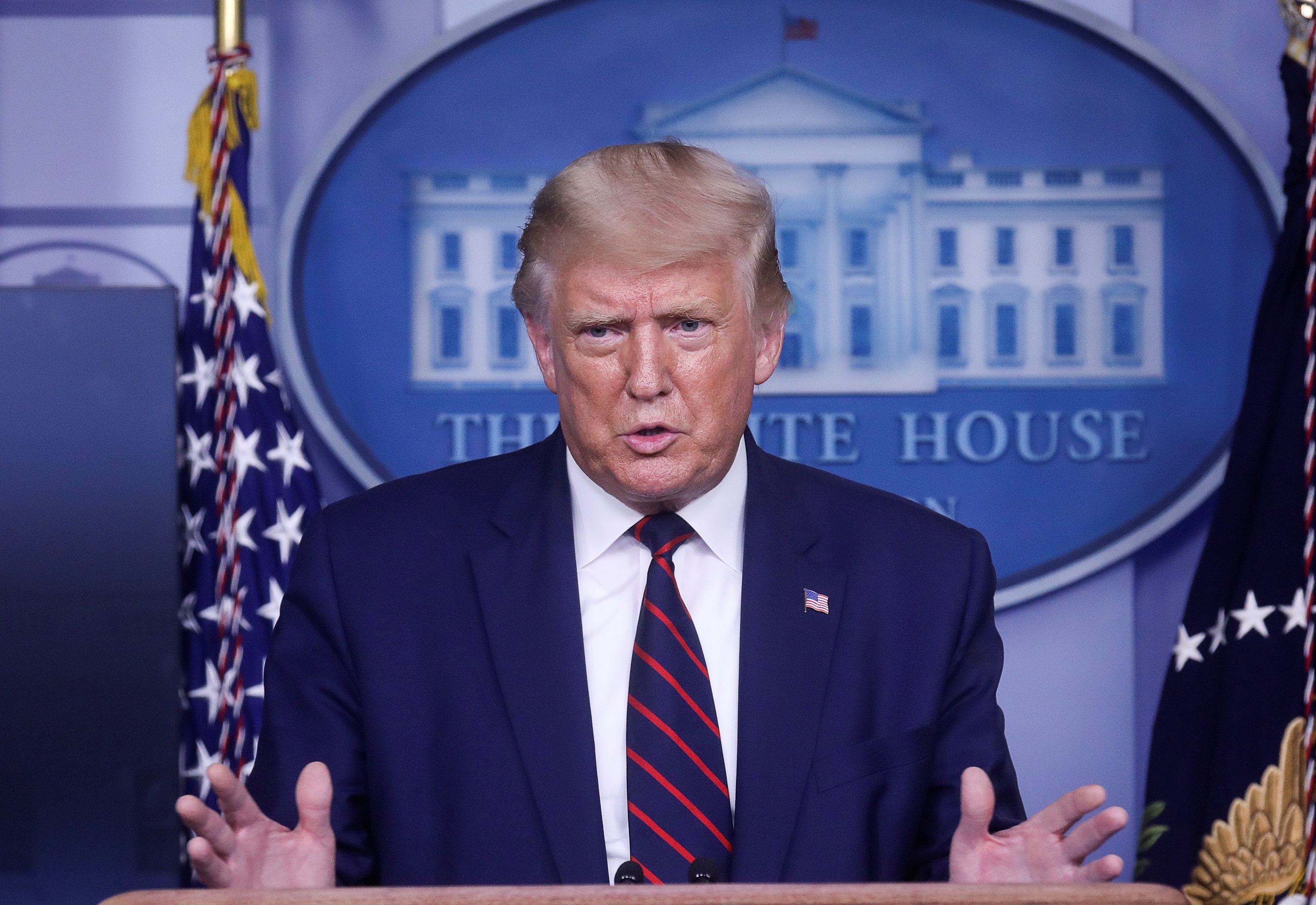House Democrats Move to Block Trumps Payroll Tax Deferral
A group of House Democrats have launched a bid to block President Donald Trumps payroll tax deferral..
A group of House Democrats have launched a bid to block President Donald Trumps payroll tax deferral action, which lets workers put off paying some of their taxes when the impact of the COVID-19 recession is assumed to be most acute but which opponents claim is problematic because it saddles people with a higher tax bill later.
Rep. John Larson (D-Conn.), the chairman of the House Ways and Means Committees Social Security subpanel, along with 20 of his Democrat colleagues, on Friday announced two initiatives—the Save Our Social Security Now Act and a Congressional Review Act resolution—both seeking to overturn Trumps tax deferral.
The executive order that Trump signed on Aug. 8 lets the 6.2 percent payroll tax be deferred from Sept. 1 through the end of the year for people earning less than $104,000 per year. After Dec. 31, employers are to start collecting the taxes that are owed, leading to a situation in which workers receive less in take-home pay next year.
“This order is reckless, unworkable, and gives new meaning to the term surprise billing,'” Larson said in an earlier statement. “Early next year Americans will be required by Trump to pay double to make up for this pointless charade!”
Larsons bill seeks to overturn guidance (pdf) issued by the Internal Revenue Service (IRS) on Aug. 28, which implements the payroll tax deferral. The Congressional Review Act resolution would similarly nullify the IRS guidance, but through a joint resolution of disapproval in the Senate.
Trumps action came after stimulus talks stalled, with the president explaining it would provide workers with extra cash when theyre likely to need it most—at the height of the pandemic-driven economic fallout.
“This will mean bigger paychecks for working families as we race to produce a vaccine,” Trump said at the time, adding that if he wins the White House for another four years, he would seek to transform the deferral into a permanent cut.
Some criticized the move as well-meaning but encumbered by a drawback. The U.S. Chamber of Commerce and some 30 trade associations called it “well-intended to provide relief for Americans during the COVID-19 crisis” but argued that unless it becomes a permanent tax cut, the executive action “threatens to impose serious hardships on employees who will face a large tax bill” down the road.
Other opponents have argued that, if the payroll tax deferral is made permanent, the move threatens Social Security, a claim that Trump rejected, saying it would “have zero impact on Social Security” and that the program would instead be financed through the general fund.
“At the end of the year, on the assumption that I win, Im going to terminate the payroll tax,” Trump said at a press conference in early August. “Well be paying into Social Security through the general fund.”

In 2019, over $944 billion of total Old-Age and Survivors Insurance and Disability Insurance (ORead More – Source

